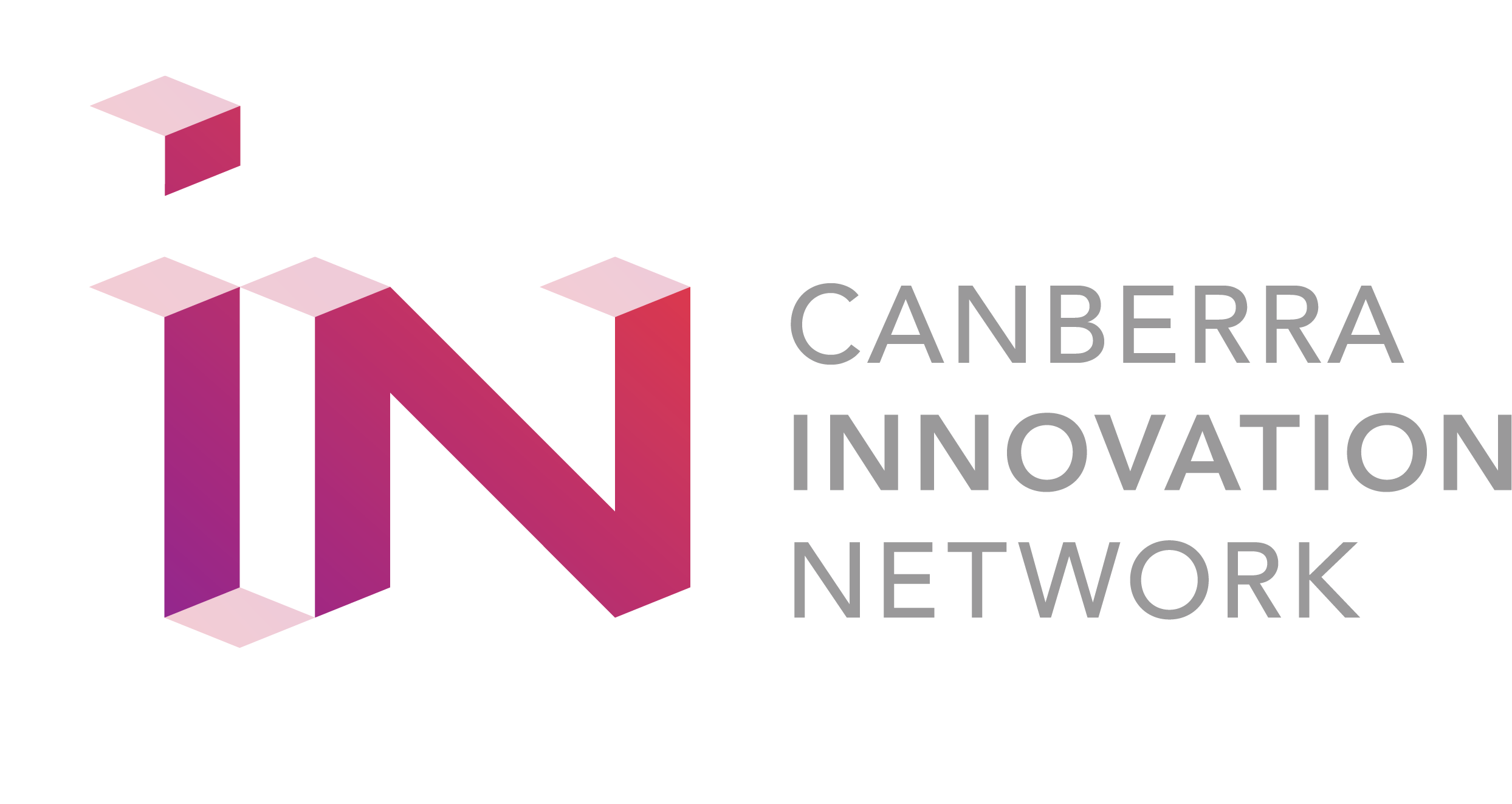- 20 September 2021
- Posted by: Canberra Innovation Network
- Categories: General News, Weekly Innovation Challenge

As part of the Canberra Innovation Network’s commitment to supporting our community of entrepreneurs during the ACT lockdown, we’ve reinstated our popular Weekly Innovation Challenge. The Weekly Innovation Challenge is for every entrepreneur, founder and business leader. If you’re growing a business, developing a product or just want to change the world, our goal is to show you relevant new ideas and challenge you to rapidly try them out. Every Lockdown Monday at 2pm we will introduce a topic, host guest experts, allow room for questions and end by setting a useful, actionable challenge for you to work on.
In the fifth instalment of the Weekly Innovation Challenge we hosted a Masterclass in Accounting for Startups. CBRIN Gold Partner PwC‘s Manager Steven Kong and GRIFFIN Mentor and Founder of Tailored Accounts Harry Hoang led an hour’s discussion of what startups need to prioritise from the beginning should they want their books to balance. A big thank you to everyone who participated, and be sure to come back each Monday during lockdown to ask questions live during the next weekly challenge!
NB: Below we share notes taken from the live meeting. This is not a transcript and these are not direct quotes; for those, refer to the video above.
Welcome to #5 of our Weekly Innovation Challenge series! These one-hour webinars are meant to help take you outside of your day-to-day while giving you some fresh thinking and support.
This week we’re pleased to be joined by Steven Kong and Harry Hoang to talk about accounting for startups. Connecting entrepreneurs, building community, all during lockdown (where there are challenges like the doing-of-dishes during important Zooms) 😉 We’re here to learn and develop our skills in important areas, and there’s no more important area than the profit part of it.
Let’s get right into it. On the theme of managing money, we have two amazing guests — Steven Kong and Harry Hoang.
Steven: PwC, Gold Partner of CBRIN — Top tip is try and get structure and books set up right from the START. PwC looks after businesses of all sizes, so feel free to reach out! What’s a really common mistake people make and regret later? People track their own personal time and investment last because they’re so passionate about their idea’s success. Keep track of each hour you spend on your project to keep yourself honest. Secondly, keep track from the start of the money you’re putting in at every stage (but most importantly the very beginning).
Harry: Founder of Tailored Accounts and mentor of GRIFFIN Accelerator cohorts — When startups begin they often say “I don’t have the money to devote to bells and whistles like accounting”, but it is important to think of accounting as a long term investment. And the next big thing? Automation! It’s key for those with little money to pay for human experts, especially at the start! Ask all of your questions — but ask real people, not Google. Those (Google) answers can be bought with ad words. And equip yourself with basic Accounting 101 regardless of your industry. Set up trial accounts and try free software as you wrap your head around foreign concepts.
A common misunderstanding is that just anyone can pick this up. Yes, you should learn about it, but also realise you’re a novice picking up lingo rather than an expert laying a foundation for strategic planning. It’s about understanding your business. What you’re spending, receiving and what your liabilities are.
What are the most important things to look for when understanding your accounts? Compliance, to start with! HR and Payroll are most important because other people are relying on you to get things right. Pay staff their supers, understand your taxes and R&D tax incentives (and what’s required), and know what is ongoing vs what is a one-off. You can’t figure out superannuation from Google — that’s worth getting expert advice on.
Register for GST! Work out TFN, ABN, BAS, quarterly systems and the like straight away (BAS: Business Activity Statement, needs to be filled out every quarter).
Three little words, Kath: G. S. T. They're killing me. #BloodyHoward #kathkimquotes pic.twitter.com/Q605Xe1z9V
— Kath & Kim Quotes (@KathKimQuotes) May 9, 2017
Checklist for business bare minimums — payroll, BAS, etc. Then software — pick the one that’s best suited to your skill set and budget. Don’t use a shoebox! Snap photos on your phone and use technology to capture the data in the right spot in order to keep evidence.
When’s the right time to employ a bookkeeper? It’s smart to do a bit of this yourself at the start — you should know the details at the start. And take advantage of your free hour with AusIndustry, but come prepared with statistics and a number of questions.
R&D and U? Talk to a specialist. GST 4 Me? The same. Know your profit and loss reports and balance reports, but in order to make the most possible, outside advice is very helpful.
Final thoughts? Keep track of all of the evidence. Set up the systems to help you right now, especially as we’re working from home (where there are less receipts to lose!). And remember that everything is a snapshot of a moment in time until you have data behind you. Our (accountants’) roles are evolving right along with tax codes and all the rest — build a relationship with your bookkeeper because accountants interact with a lot of different industries (by way of their clients) and have great info to share!
Remember to join us next week for the next instalment of this important series. See you on 27 September at 2:00 PM!
Week 5: What can I do for my business to improve my money management? That might be downloading some software or having a convo with my accountant …
Week 4: Have a hard look at what you can offer a potential investor and decide if you’re ready, or need to do some more work first. Once you’re ready put together a dream list of a half-dozen investors and practice your pitch on a mirror and on your lockdown bubble.
Week 3: Sign up for one of the free trials mentioned above and test it out on your site. If you’re averse to that, identify a friend who isn’t familiar with your site and give them the five-second-challenge, then implement a change you learn is necessary from what they spot.
Week 2: Identify the ONE thing you can do better for your customers, and just bloody do it!
Week 1: Realise one problem I have and share it with someone I trust (“I’m not sure what to do about XYZ” or “I’m worried about ABC”). Saying it out loud is sometimes all I need to do! But other times the input from my team, a friend or another member of the innovation community with an understanding of my industry is just what I need to solve this.


